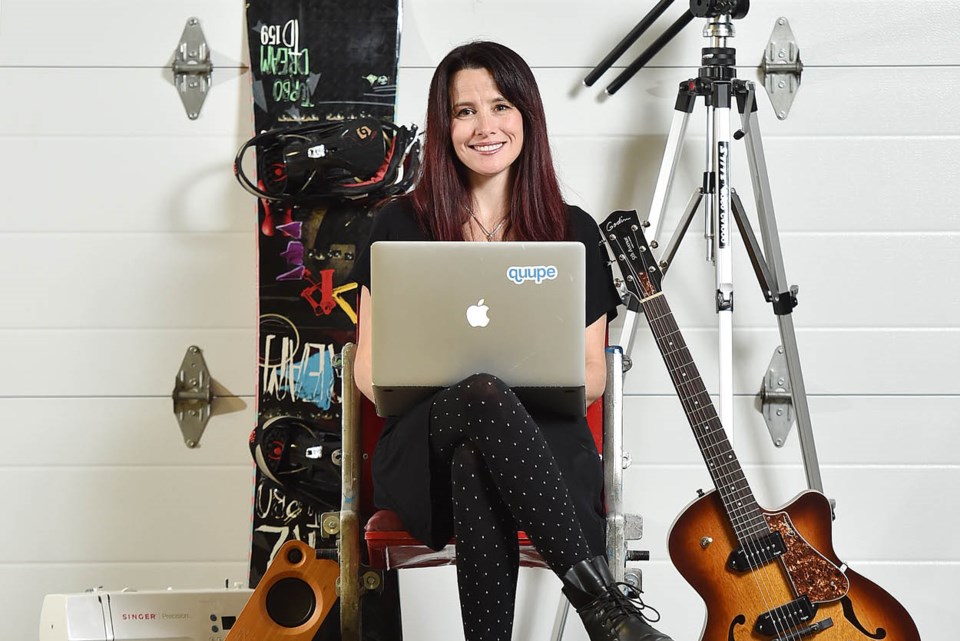Letting unused goods gather dust in a musty storage room might soon be a thing of the past.
As the sharing economy grows and businesses try to reduce waste, one company is looking to revolutionize the way consumers share items, in order to keep them from disappearing into landfills or sitting unused.
Vancouver-based Quupe is a sharing platform that allows users to rent personally owned items like sports equipment, technology, video games and more to service users.
“[Quupe] allows neighbours to rent things from each other, things like kayaks, power washers – those things that sit around and don’t really generate value or use for most of the year,” said company co-founder Angela Hamilton. “The concept was to get things out of storage and get it into people’s hands who want to use it and have cool experiences.”
The company’s four co-founders met at the Centre for Digital Media. Quupe launched in February and occupies an office in the Mount Pleasant neighbourhood.
“We are hoping … that our app will be what helps make that shift for people so when you think about trying something new, you don’t necessarily need to go and buy a whole thing,” Hamilton said.
The company has just a handful of employees but is looking to expand once it has established itself in the Vancouver market.
The platform comes at a timely moment in history as the sharing economy and its companion economic model, the recycling-based circular economy, become more established.
“Since the late 2000s, the term ‘circular economy’ [CE] has been used more frequently as societies become increasingly aware of the need to move away from the linear economy based on ‘take, make and waste,’” said Martin Charter, director of Britain’s Centre for Sustainable Design. “A growing drive to ‘design out’ waste, enable product life extension and move away from built-in product obsolescence will eventually cement the role of CE into the wider sustainability agenda.”
For established businesses wanting to align themselves with the circular-economy movement, starting from the ground up is the best approach, said Frances Edmonds, head of sustainability at HP Canada.
“Embrace the concept of the circular economy beginning with the concept of extended producer responsibility,” Edmonds said. “Once you start thinking about the impacts of your product or service and how you can minimize it, it really changes everything.”
Edmonds cited HP’s Instant Ink subscription-based service that notifies the company when a customer’s printer is low on ink, and automatically sends ink and collects the used cartridge for recycling, eliminating waste.
“Most companies have no idea what their carbon footprint is,… even fewer have measured it and almost none disclosed it.”
Edmonds added that big businesses wanting to prioritize recycling might need to change their procurement practices by buying with the circular economy in mind. Hamilton said her company can change the way big businesses regard their products and help consumers to make savvy choices.
“[Quupe] encourages people to think twice about their consumption habits…. What we are seeing now is a shift away from the heavy consumer-focused lifestyle in the ’80s and ’90s.… People now are more willing to pay for experiences rather than physical objects.”



